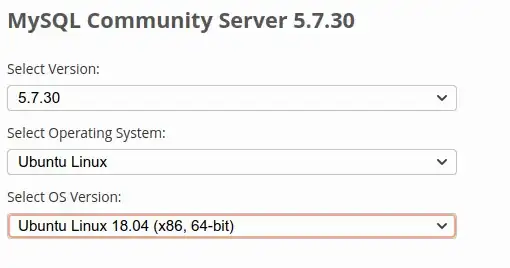I am trying to install MySQL 5.7 on a fresh Ubuntu 20.04 installation. I followed Kulfy's steps in this post to install MySQL 5.7 on Ubuntu 20.04. I was able to install mysql-client, but not mysql-server.
The output of
apt-cache policy mysql-server
is
mysql-server:
Installed: (none)
Candidate: 8.0.19-0ubuntu5
Version table:
8.0.19-0ubuntu5 500
500 http://ro.archive.ubuntu.com/ubuntu focal/main amd64 Packages
500 http://ro.archive.ubuntu.com/ubuntu focal/main i386 Packages
5.7.30-1ubuntu18.04 500
500 http://repo.mysql.com/apt/ubuntu bionic/mysql-5.7 amd64 Packages
5.7.29-0ubuntu0.18.04.1 500
500 http://security.ubuntu.com/ubuntu bionic-security/main amd64 Packages
500 http://security.ubuntu.com/ubuntu bionic-security/main i386 Packages
I used the following command to install mysql-server.
sudo apt install mysql-server=5.7.29-0ubuntu0.18.04.1
The output of the above command is:
Reading package lists... Done
Building dependency tree
Reading state information... Done
Some packages could not be installed. This may mean that you have
requested an impossible situation or if you are using the unstable
distribution that some required packages have not yet been created
or been moved out of Incoming.
The following information may help to resolve the situation:
The following packages have unmet dependencies:
mysql-server : Depends: mysql-server-5.7 but it is not going to be installed
E: Unable to correct problems, you have held broken packages.
I also tried the suggestions in this post and also this one (what I thought could work).
Can you please point me in the right direction?
Thank you!
